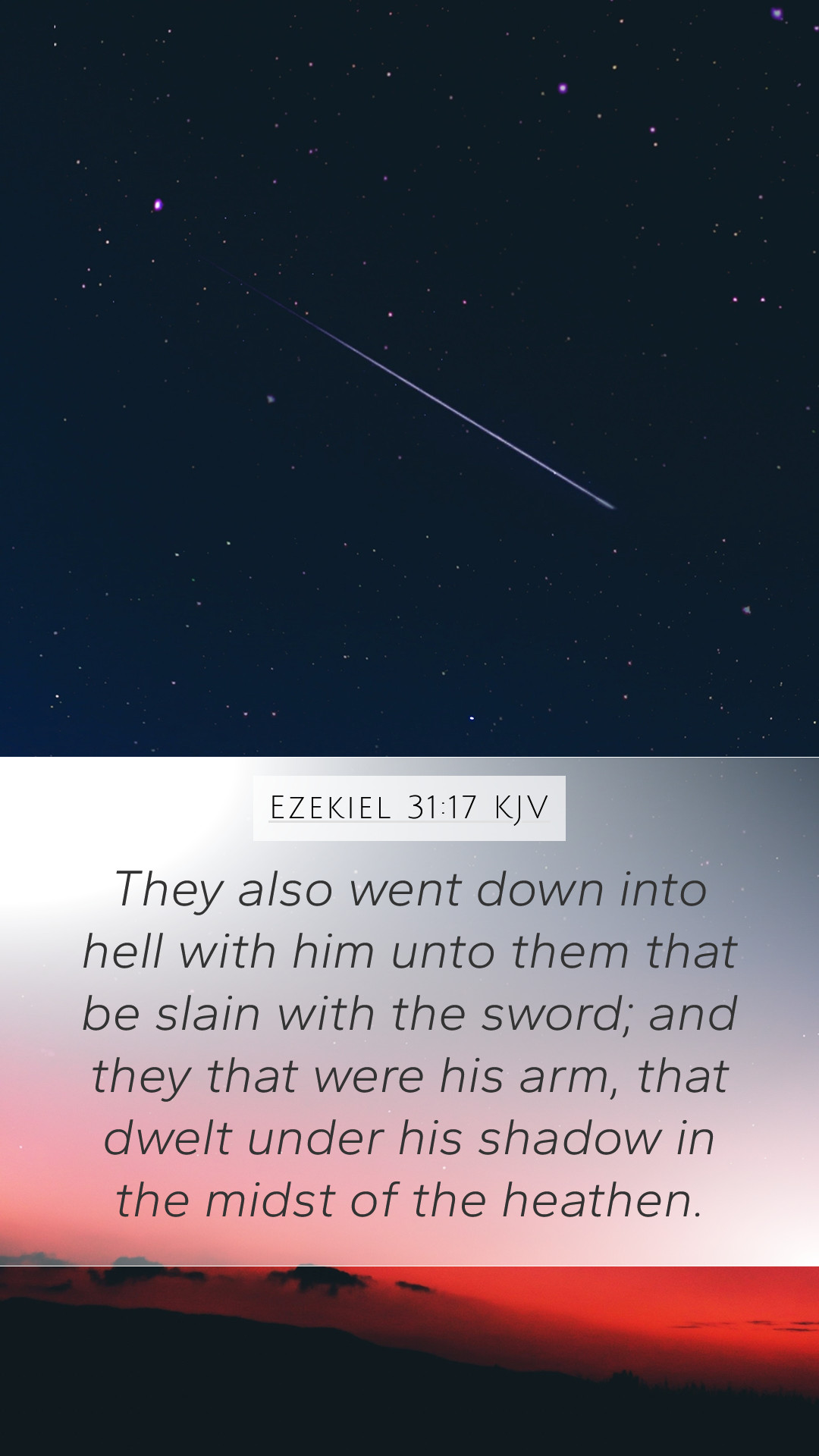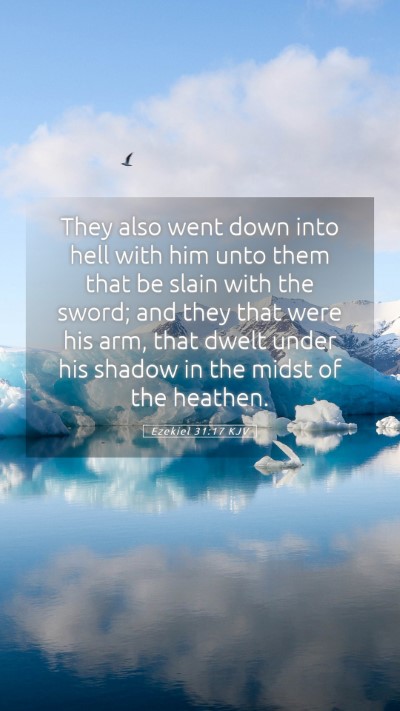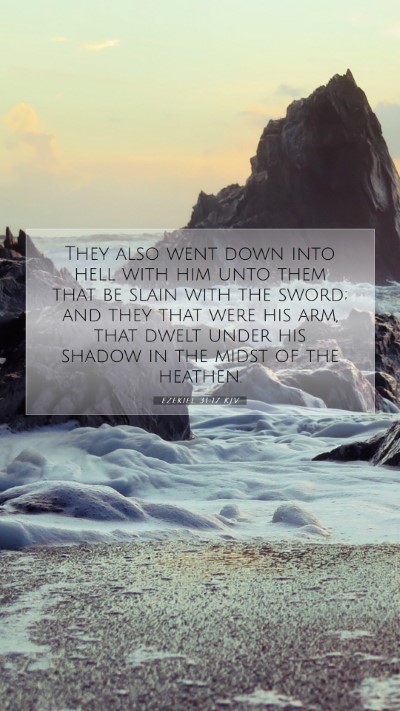Ezekiel 31:17 - Biblical Meaning and Interpretation
Ezekiel 31:17 states: "They also went down into hell with it unto them that be slain with the sword; and they that were his arm, that dwelt under his shadow in the midst of the heathen."
This profound verse requires thorough Bible verse interpretation to grasp its full implications within the context of Ezekiel's prophetic message.
Contextual Background
In Ezekiel 31, the prophet uses the metaphor of a mighty cedar tree, often interpreted as a representation of ancient Egypt and its grandeur. The passage illustrates the downfall of this once-great nation, emphasizing themes of pride, power, and divine judgment.
Verse Analysis
-
Connection to Death and Judgment:
The reference to going down to "hell" signifies a complete downfall and loss of status, affirming the ultimate fate that awaits the proud and powerful.
-
Companions in Destruction:
The "they that were his arm" refers to those who supported or allied with Egypt. Their fates are intertwined, as alliances do not shield them from divine retribution.
-
The Shadow Metaphor:
The image of being under the shadow points to dependence or shelter, which is now rendered futile in the face of appropriate divine judgment.
Commentary Insights
Matthew Henry's Commentary
Henry emphasizes that this verse represents a cautionary tale about the transient nature of worldly power. He highlights that heavy judgment is upon nations and leaders who pride themselves, drawing a parallel to the fate of those who put their trust in mortal strength instead of divine providence.
Albert Barnes' Commentary
Barnes elaborates on the imagery of "hell" as signifying the grave or the lowest point of existence following defeat. He interprets this passage as a reminder that no authority lasts forever and that alliances forged in pride and rebellion against God ultimately lead to ruin.
Adam Clarke's Commentary
Clarke adds depth by focusing on the broader implications of the passage. He articulates that the cedar tree symbolizes nations and rulers that may seem invincible but are inevitably humbled. The verse serves to inform us about the cycle of rise and fall governed by divine justice.
Applying the Verse in Context
Understanding this verse within its biblical context is crucial for application in today’s world. Bible study insights point out that even empires and great leaders can succumb to divine retribution when they falter in moral integrity and rely solely on their own power.
For individuals seeking to apply biblical teachings from Ezekiel 31:17, consider the importance of humility, reliance on God, and the acknowledgment that worldly successes are temporary and need to be aligned with divine purpose.
Conclusion
Ezekiel 31:17 serves as an essential reminder of the inevitable judgement that awaits those who stand in opposition to God’s will. Through careful Biblical exegesis and Bible verse commentary, believers can derive deep insights that encourage humility and reliance on higher principles, resonating through all aspects of daily life.
Cross References
- Ezekiel 32:18-30 - Further details on judgment against Egypt.
- Isaiah 14:12-15 - The fall of Lucifer as a parallel theme of pride leading to downfall.
- Jeremiah 46:25-26 - God's judgment on nations oppressing Israel.
- Revelation 19:20 - The ultimate defeat of false powers by divine authority.


